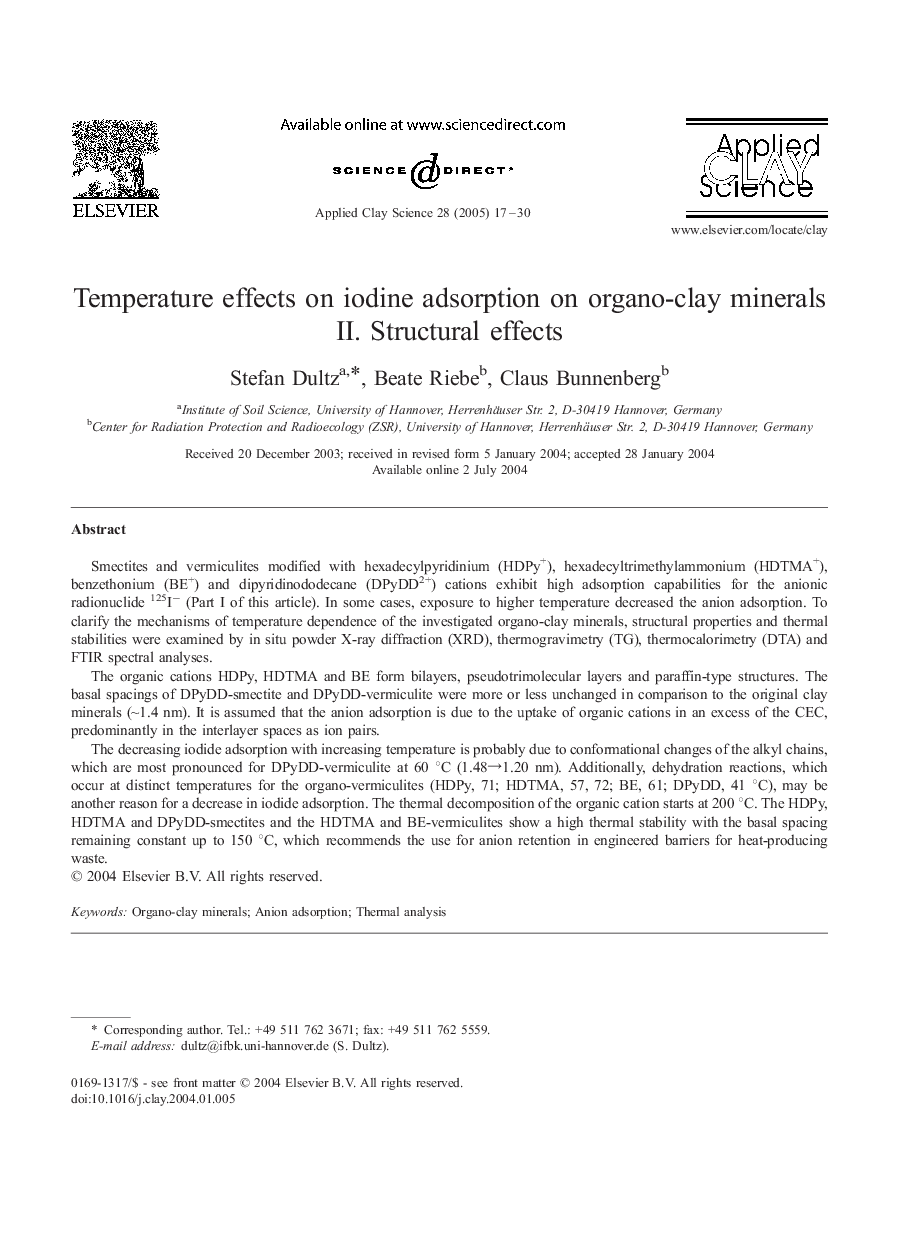| Article ID | Journal | Published Year | Pages | File Type |
|---|---|---|---|---|
| 9822533 | Applied Clay Science | 2005 | 14 Pages |
Abstract
The decreasing iodide adsorption with increasing temperature is probably due to conformational changes of the alkyl chains, which are most pronounced for DPyDD-vermiculite at 60 °C (1.48â1.20 nm). Additionally, dehydration reactions, which occur at distinct temperatures for the organo-vermiculites (HDPy, 71; HDTMA, 57, 72; BE, 61; DPyDD, 41 °C), may be another reason for a decrease in iodide adsorption. The thermal decomposition of the organic cation starts at 200 °C. The HDPy, HDTMA and DPyDD-smectites and the HDTMA and BE-vermiculites show a high thermal stability with the basal spacing remaining constant up to 150 °C, which recommends the use for anion retention in engineered barriers for heat-producing waste.
Related Topics
Physical Sciences and Engineering
Earth and Planetary Sciences
Geochemistry and Petrology
Authors
Stefan Dultz, Beate Riebe, Claus Bunnenberg,
